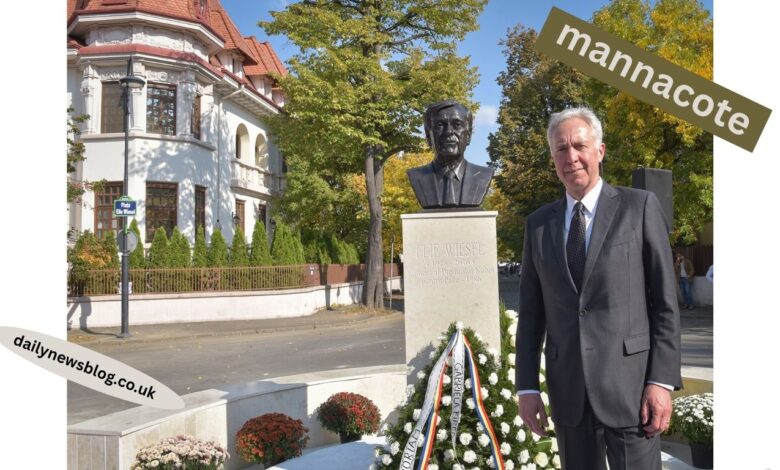Elie Wiesel Romania: The Heartbreaking Tale Behind the Legend

The name Elie Wiesel evokes powerful images of survival, truth, and unwavering commitment to justice. But before he became a Nobel Laureate and a voice for Holocaust remembrance, he was simply a boy from Romania—from a small town called Sighet that held the beginnings of both his joy and his pain. The story of Elie Wiesel Romania is more than biographical trivia; it is the backdrop of a life forever changed by the atrocities of World War II.
Early Life in Sighet, Romania
A Childhood Rooted in Faith and Family
Elie Wiesel was born into a deeply religious Jewish family in Sighet, a town in the Maramureș region of northern Romania, near the Ukrainian border. Growing up in a close-knit community, Wiesel was surrounded by family, tradition, and spirituality. His days were filled with the study of the Talmud and Torah, reflecting his strong connection to faith from a young age. His home was modest, but his world was rich in cultural and spiritual values.
Sighet was a vibrant center of Jewish life, where families observed holidays, shared meals, and upheld ancient traditions. For the young Elie Wiesel, Romania was not just a location—it was a nurturing environment that shaped his earliest values and gave him a foundation in resilience and moral clarity. These early experiences would remain in his memory long after the town was silenced by war.
Romania Before the Holocaust
In the 1930s, Romania was home to one of the largest Jewish populations in Europe. However, antisemitism was growing, fueled by fascist movements like the Iron Guard and discriminatory government policies. Jewish citizens were increasingly subjected to systemic discrimination and social isolation. Yet, Wiesel’s early writings reveal a boy still full of wonder and questions, someone who was slowly beginning to sense the danger but didn’t fully grasp its scale.
This contrast between the beauty of his Jewish heritage and the rising tide of hatred is central to understanding the heartbreak of Elie Wiesel Romania. It is the dual reality of his homeland: a place of warmth and worship, and later, a place of betrayal and deportation.
The Holocaust and the Tragedy of Elie Wiesel Romania
Deportation and the Loss of Innocence
In May 1944, the Nazi regime—working with Hungarian forces that had annexed the region—began deporting Jews from northern Romania, including the town of Sighet. Elie Wiesel, just 15 years old, was among those forced into cattle cars bound for Auschwitz. That train ride marked the end of his childhood and the beginning of his life as a survivor.
Upon arrival, he was separated from his mother and younger sister, both of whom were killed in the gas chambers. His time in Auschwitz and later Buchenwald was defined by hunger, fear, death, and the loss of his father, who died shortly before liberation. The pain of what happened to him—and what began in Romania—never left him.
The Silence of the World
One of Wiesel’s most haunting themes was the silence of the world during the Holocaust. Even as trains rolled out of Romanian towns like Sighet, carrying innocent families to their deaths, the international community largely remained indifferent. Wiesel often spoke about how the world’s silence was as painful as the Nazis’ brutality. It became a central pillar of his work to ensure that silence would never again be a response to suffering.
Through his experience, Elie Wiesel Romania came to symbolize more than a birthplace—it became a silent witness to genocide and a symbol of how easily neighbors can become perpetrators or bystanders.
Post-War Life and the Voice of Remembrance
Rebuilding After Liberation
After the war, Wiesel found himself an orphaned teenager in a French orphanage. Despite his deep trauma, he committed himself to education and writing. He studied at the Sorbonne, eventually becoming a journalist and author. His masterpiece, Night, written more than a decade after the war, was first published in Yiddish and later translated into many languages.
Wiesel’s experience in Romania and the horrors that followed became the emotional and intellectual fuel behind his mission: to tell the story of the Holocaust so the world would never forget.
Advocacy, Teaching, and Global Influence
Elie Wiesel didn’t stop at writing. He became an international figure, teaching at Boston University, giving speeches at the White House, and establishing the Elie Wiesel Foundation for Humanity. In 1986, he was awarded the Nobel Peace Prize for his tireless advocacy. Despite his global status, he never forgot his roots in Romania and the culture that raised him.
He returned to Romania several times later in life, speaking openly about both his painful memories and his hopes for reconciliation and historical truth. The Elie Wiesel Romania story is about remembering trauma, holding nations accountable, and fostering moral responsibility.
Honoring His Legacy in Romania
Romania’s Acknowledgment and Memorials
In later years, Romania began recognizing Wiesel’s immense contributions to truth and memory. In 2003, his childhood home in Sighet was turned into the Elie Wiesel Memorial House, a museum that preserves Jewish history and documents Holocaust atrocities. Walking through the rooms where Wiesel once studied and prayed offers a tangible connection to history.
Moreover, Romania established the Wiesel Commission in 2004 to investigate its own role in the Holocaust, a move prompted in part by Wiesel’s public criticism. This marked a significant step in confronting the country’s past.
FAQs About Elie Wiesel and Romania
Was Elie Wiesel born in Romania?
Yes, Elie Wiesel was born in Sighet, a Romanian town with a thriving Jewish population, in 1928.
Where is Elie Wiesel now?
Elie Wiesel passed away in 2016 in New York. He is buried in the United States, but his legacy is global.
What happened to Elie Wiesel at age 15?
At age 15, Wiesel and his family were deported from Romania to Auschwitz, where he lost his mother and sister.
Was Elie Wiesel a Holocaust survivor? True False?
True. Elie Wiesel was a Holocaust survivor and one of its most powerful chroniclers.
How many Holocaust survivors are still alive?
As of 2025, it is estimated that fewer than 50,000 Holocaust survivors remain alive globally.
What are 5 facts about Elie Wiesel?
- Born in Romania in 1928.
- Survived Auschwitz and Buchenwald.
- Authored the memoir Night.
- Won the Nobel Peace Prize in 1986.
- Founded the Elie Wiesel Foundation for Humanity.
Conclusion
The legacy of Elie Wiesel Romania is deeply intertwined with one of the most harrowing periods in human history. Romania gave Wiesel his first language, his spiritual education, and his moral compass. But it also became the place from which he was torn away into the abyss of Auschwitz. From that pain, he emerged as a beacon of truth and hope.
Through his books, speeches, and advocacy, Elie Wiesel transformed personal tragedy into a global message of remembrance and human dignity. He taught the world that silence in the face of suffering is a crime—and that remembering is the beginning of justice.
Elie Wiesel Romania is not just a keyword—it’s a story of origin, loss, and an enduring voice that echoes through generations.
SEE MORE INFORMATION BY CLICKING HERE Dailynewsblog




